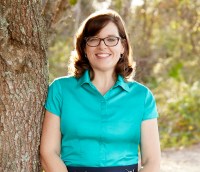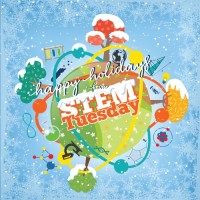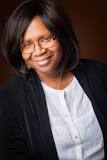Happy Holidays!!
It’s that time of year where people scramble to find gifts. We, at STEM Tuesday, recommend you give the gift of CURIOSITY. DISCOVERY. ADVENTURE… Buy a STEM/STEAM book for someone! Not only will you be opening a child’s eyes to the wonder of the world around them, you’ll also be supporting a STEM author, too.
But what topic? And where do I find a great book? While your first thought might be to look at award lists (which also start to come out this time of year), we recommend that you look further than that. The award books are great, but there are also plenty of other STEM/STEAM books out there that don’t win awards. So look widely and take a gander at our monthly book lists. They are chock-full of great titles!
Our own Christine Taylor-Butler did a post on where to find great STEM books and how to support STEM authors last year. Since it’s very pertinent to today, I’m re-posting it here. (Thanks, Christine!)
Over the past two years authors I interviewed for STEM Tuesday have taught me about spider silk made from genetically modified goats, women who were denied a spot in the astronaut program despite performing better than their male counterparts, and implicit bias in archeology that may skew what we know about ancient civilizations. One author/illustrator judged an MIT contest showcasing implausible scientific ideas. Another learned to dive with a photographer in order to better understand the nature of ocean conservation. And while the world knows about the women showcased in Hidden Figures, one author published a book about fifty additional African American women whose STEM contributions changed the world.
If I were to ask you to name the above authors, would you be able to do it without looking at my interviews? That’s my concern in a nutshell. A select few of these authors have been recognized with awards, but most have not. Nonfiction is a staple for helping young readers develop executive functioning and learn more about the world around them, but the authors are not often celebrated in proportion to their contributions to children’s literature. Even with awards, most authors are still struggling to become household names let alone achieve financial stability.
Writing STEM is hard. The research often rivals an academic research paper. Many of us write for magazines, textbooks, trade publishers and educational publishers. What is often true is that authors need to log a lot of hours in the library, speaking to experts and researching in the field to determine how to best present the subject matter in a way a student can understand. In a sense, we have to do a deep dive to understand the material before we can explain it coherently to someone else. Unique to children’s publishing there are additional rules to follow. There’s an art to working within those constraints. I’ve been asked to do planet books of 4,000 words for upper elementary students and recast those same facts for a beginner readers using only 300 words. It’s not just the word count but the choice of words. For instance, with younger students we have to be mindful about sentence length, how many multisyllabic words in a sentence, and words common for that reading level and Lexile range.
After the books are printed and in circulation, awards are tricky. For every author that receives recognition, there are many equally skilled authors that don’t. And remember, the industry celebrates winners, not runners up. A different committee, on a different day, might have picked a different book entirely from the same pile. I know, because I’ve been on a number of awards committees. There are epic battles and painstaking discussions before a consensus is reached. I’ve also noticed that the attention paid to award winning fiction authors is sustained much longer than for nonfiction authors. Those awards often translate into more work for fiction authors and higher compensation but not necessarily for their nonfiction counterparts.
I’ve been luckier than most of my peers in this respect. I’ve published more than 90 books for children and have more under contract. So I wanted to raise my voice to challenge the readers of this blog to change the nature of the game. The industry pays attention to where the money is flowing. Publishing pays attention to social media chatter and reviews. You can help my STEM peers by doing the following.
Once a month:
- Check out a book (or two) from the library. If you need a place to start, we have great recommendations on our STEM Tuesday site. Books that are checked out stay in circulation longer.
- If you’re in a school district, consider adding a book to the school library or classroom. I know budgets are small, but even one book is a boon for that author.
- Write a review. It only takes five minutes. Amazon, Goodreads, Barnes and Noble.
- Give a shout out to an author whose work you admire. Try to pick someone who isn’t getting a lot of marketing support from publishers. The ones the awards committees didn’t announce. I’m all for boosting underdogs. That shout-out will make an author’s day.
- Buy a STEM book as a gift for the holidays!
Win a FREE copy of the book of your choice from me, Jennifer Swanson.
It’s the holiday season so let’s do something positive to end 2022.
This month, instead of us telling you what we found fascinating…this time you tell us.
What nonfiction book have you loved?
What’s next on your wish list?
Enter the giveaway by leaving a comment below.
The randomly-chosen winner will be contacted via email and asked to provide a mailing address (within the U.S. only) to receive the book.
Good luck!
******************************
 Jennifer Swanson dreams of one day running away to the Museum of Science and Industry- then maybe she could look at all the exhibits and try out all the gadgets without competing for them with her kids. An author of fifty nonfiction science books for kids, Jennifer’s goal is to show kids that Science Rocks! She lives in sunny Florida with her husband and Great Pyrenees dog, Sasha. When not writing she’s on the hunt for fun science facts. www.jenniferswansonbooks.com
Jennifer Swanson dreams of one day running away to the Museum of Science and Industry- then maybe she could look at all the exhibits and try out all the gadgets without competing for them with her kids. An author of fifty nonfiction science books for kids, Jennifer’s goal is to show kids that Science Rocks! She lives in sunny Florida with her husband and Great Pyrenees dog, Sasha. When not writing she’s on the hunt for fun science facts. www.jenniferswansonbooks.com




